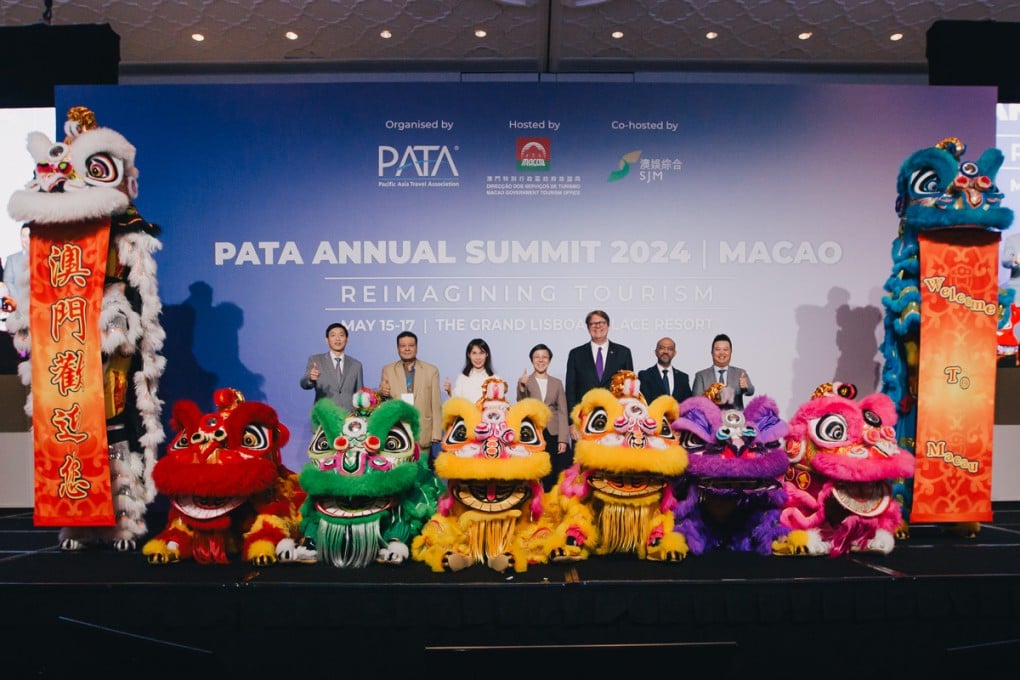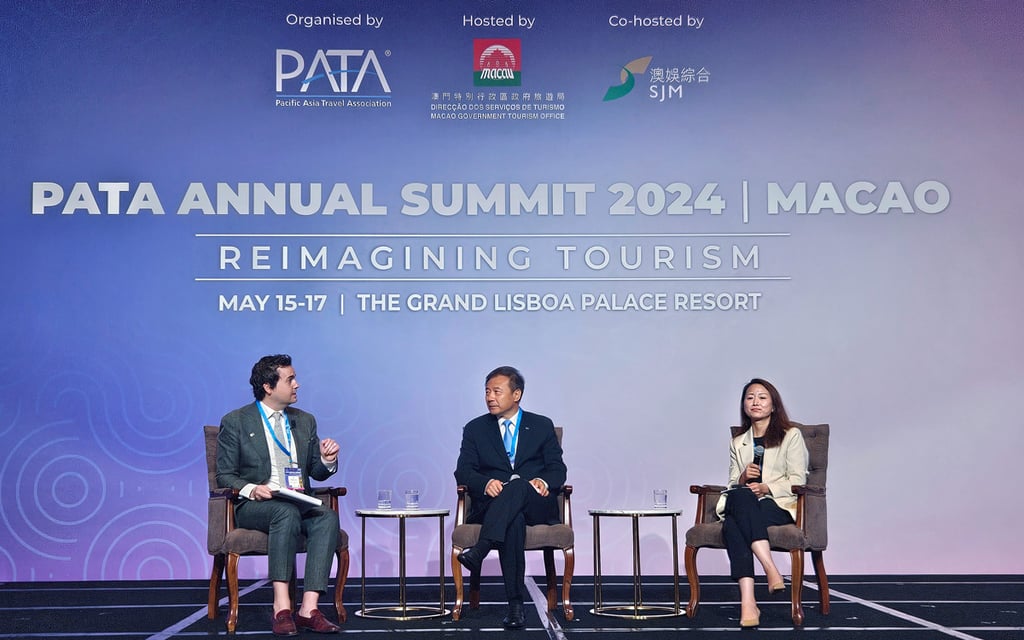PATA gathering draws record numbers
- Travel and tourism sector getting back to pre-2020 levels, but much work still needs to be done
- Understanding changes in consumer behaviour is key to recovery, say delegates

PATA Annual Summit 2024
Travel-trade leaders from across Asia were joined by analysts covering airlines, hotels and economic forecasting in the largest gathering of the Pacific Asia Travel Association (PATA) since the pandemic.
The PATA Annual Summit 2024 was held at the Grand Lisboa Palace Resort Macau, , the latest development by integrated resort operators SJM Resorts, with the South China Morning Post as the event’s foremost media sponsor.
As the three-day conference concluded on Friday, May 17, PATA was set to work on two agreements signed during the summit – with Sarawak Tourism Board and the East Asia Inter-Regional Tourism Federation (EATOF).
By Monday, PATA experts were working side by side with Sarawak tourism’s people in Kuching on a Tourism Destination Resilience programme to develop ecotourism, community-based business ideas, sustainability targets and carbon neutrality.
The Memorandum of Understanding (MoU) signing with EATOF took place under PATA’s Partnerships for Tomorrow initiative to enhance destination marketing and other efforts for the tourism industry in the 10 member cities across East Asia. The federation is headquartered in South Korea’s Gangwon province, which hosted the 2018 Pyeongchang Winter Olympics, and its members represent provincial cities beyond the main tourism hotspots.

PATA’s chief executive, Noor Ahmad Hamid, said the work being undertaken with the signing of both MoUs follows a period in which the tourism industry was hit hard by the global pandemic. Though the consensus from the conference is that business is getting back to pre-2020 levels, work needs to be done to push the conference theme of “Re-imagining Tourism”, he noted. Hamid describes this as PATA “upskilling” people working in the industry to give them the resilience to face the challenges brought by such issues as digital advancements and sustainability targets.
“During the pandemic the tourism industry was the first one to be hit… and we were like the last to be open,” Hamid told the Post in an interview during the summit. “Hence, there is some feeling that we lost quite a lot of people from the industry; the conversation that we’re having will be about capacity building, retraining and to continue opening up the industry.”
Key to the industry’s recovery has been understanding rapidly changing trends in consumer behaviour, ranging from digital payment systems to more independent travel organised by couples, individuals or families – as opposed to group travel.

The changes were particularly noted among Chinese consumers along with their aspirations towards eco-friendly destinations, culture, and wellness activities. A panel discussion on the future of the industry saw Sarah Wang, Asia regional director of the World Travel and Tourism Council (WTTC) being joined by Liu Shijun, vice chairman of the World Tourism Alliance, with a video message on sustainable tourism from Chris Cocker, CEO of the South Pacific Tourism Organisation. The session was moderated by Lee Williamson, the South China Morning Post’s executive director of specialist publications.
Wang shared some of the findings from the WTTC’s Economic Impact Report, with 62 million jobs being lost in the global travel and tourism, and financial losses of almost US$4.5 trillion in 2020, due to the impact of Covid.
Post-pandemic trends were also highlighted by Caroline Bremner, senior head of travel research, Euromonitor International. She noted that consumers are becoming more brand-conscious in their travel choices with “purpose-driven” service providers such as hotels favoured for their green credentials. “Eco adventures” with outdoor-based activities aligned with wellness are also on the rise, she said.

The role of culture and heritage in enhancing the appeal of a destination were highlighted by Pansy Ho, group executive chairman and managing director,Shun Tak Holdings, in a “fireside chat” with PATA chair Peter Semone. Ho said the return or “reassembling” of China’s lost treasures from collections around the world and placing them back at the heart of the country’s heritage was a priority.